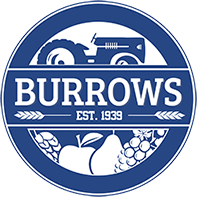Baler Buying Guide
 Farmers need a few essential tools to successfully harvest hay, and one such machine is a baler. These high-performance machines are designed to quickly gather everything you’ve harvested and roll them up into neat bales that you can easily move from your field to the barn or elsewhere on your property. When you start shopping for a baler, you’ll find several models to choose from. With so many options available to you, you’ll want to make sure you’re choosing the right equipment.
Farmers need a few essential tools to successfully harvest hay, and one such machine is a baler. These high-performance machines are designed to quickly gather everything you’ve harvested and roll them up into neat bales that you can easily move from your field to the barn or elsewhere on your property. When you start shopping for a baler, you’ll find several models to choose from. With so many options available to you, you’ll want to make sure you’re choosing the right equipment.
To help you narrow down your choices, the experts at Burrows Tractor have provided some tips for making your shopping process a little easier. When you’re ready to check out some high-quality hay balers for sale, get in touch with us at one of our locations in Yakima and Wenatchee, Washington, and North Plains, Oregon. Our friendly staff will be happy to show you what we have available right now!
Consider Your Crop
One of your topmost priorities should be to make sure you’re getting a baler that’s right for your crop. Some crops require different bale sizes and densities. While high-output models may sound ideal, these bales aren’t actually that dense, and it might not be right for what you need. It can even increase your operating costs in the long run. Also, be aware of energy-efficient balers for the same reasons. When looking at your options, focus on the cost per baled ton, including operation and wire cost.
Square vs. Round Balers
Balers primarily fall into two categories: square and round. Both have their own unique benefits, so you’ll want to consider what you need in order to make the right choice.
Square balers can make it easier to stack your product, which can make transportation more convenient and allow you to stack more bales. Remember that bales can’t be stored in wet environments, since they’ll start to mold. You'll need to store the square bales somewhere where they are protected from the elements, such as inside a barn or covered with a waterproof tarp.
Round balers can often pack hay more tightly, making them incredibly efficient to operate. You can also get variable-chamber models to make it easier to adjust things like the intake, as well as control moisture levels. Because of their design, they can also be better for products that need to be transported to far-off places.
Horsepower
Of course, whatever baler you choose will need to be compatible with your tractor. This will probably mean checking the required horsepower to use it and making sure that your tractor is up to the task. Keep in mind that square balers often require more horsepower than round ones, so give those models a particularly close look when you’re looking at your options. There are some other important considerations that might influence the baler you choose. These include Power Take-Off (PTO), which transfers the engine power to the attachment, and hydraulic power, which assists in operating your implements.
Budget
Of course, your budget is going to play a big role in your final decision. However, it shouldn’t be the only deciding factor. If your focus is simply on finding something inexpensive, you might be missing out on models that will actually be helpful for your work. You’ll need to balance what you can afford with what’s realistic for the market. If your budget is tight and you’re having trouble finding a baler in your budget, let our staff know so we can help you find more affordable options.
This guide should hopefully get you started in your process to find the right baler for your farm. When you’re ready to check out some top-quality balers for sale, visit Burrows Tractor at one of our dealership locations near Kennewick, Ellensburg, and Richland, WA. We proudly serve all those in Portland, OR.
